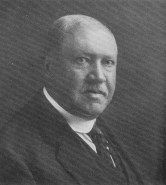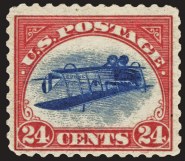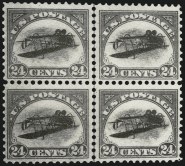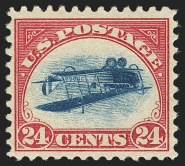Owner Biography
Arthur Hind
Arthur Hind (1856–1933) was an industrialist who lived in Utica N.Y.
He was owner of Hind-Harrison Plush Co. in Clark Mills, New York, which made upholstery fabrics for automobile manufacturers. He came to the United States from Bradford, England in 1890.
According to the Schenectady Gazette, while in business in England, the McKinney Tarriff Act made it difficult to export textiles from England to the United States, so he moved to Utica N.Y.
Hind formed a worldwide collection of staggering proportions, commensurate with his estimated wealth of $7 to $10 million (about $100 million in today’s money).
In 1928 and 1929, with the stock market and society roaring, Hind had attempted to sell his United States and Confederate States collection through Charles J. Phillips for $535,000. Offers of $450,000 and $480,000 were made, but Hind rejected them. With the stock market crash of October 1929, the hope of selling the collection intact faded, and Hind’s financial position weakened.
Following Hind’s death in Miami on March 1, 1933, the estate executors authorized Charles J. Phillips and William C. Kennett Jr. (Hind’s philatelic secretary) to sell the collection at unreserved public auction, which was held on November 20-24, 1933. The first sale catalogue listed 1,653 lots of United States and Confederate States stamps and covers. Since photographs of regular United States postpostage stamps were still banned by law, only the provisionals, carriers, locals and Confederate States items were photographed.
Following the Phillips-Kennett auction, which realized $244,810 (as reported by Phillips), the balance of the Hind collection, comprising stamps of foreign countries, was acquired by Hind’s nephew in England and sold through H. R. Harmer in London in eleven sales held in 1934 and 1935, which realized a total of more than $675,000.
Among the notable rarities owned by Arthur Hind were rare U.S. postmasters' provisionals, the unique unused 2c Hawaiian Missionary stamp, unused copies of the 1c and 2c Post Office Mauritius, and the unique 1c Magenta British Guiana.
He was owner of Hind-Harrison Plush Co. in Clark Mills, New York, which made upholstery fabrics for automobile manufacturers. He came to the United States from Bradford, England in 1890.
According to the Schenectady Gazette, while in business in England, the McKinney Tarriff Act made it difficult to export textiles from England to the United States, so he moved to Utica N.Y.
Hind formed a worldwide collection of staggering proportions, commensurate with his estimated wealth of $7 to $10 million (about $100 million in today’s money).
In 1928 and 1929, with the stock market and society roaring, Hind had attempted to sell his United States and Confederate States collection through Charles J. Phillips for $535,000. Offers of $450,000 and $480,000 were made, but Hind rejected them. With the stock market crash of October 1929, the hope of selling the collection intact faded, and Hind’s financial position weakened.
Following Hind’s death in Miami on March 1, 1933, the estate executors authorized Charles J. Phillips and William C. Kennett Jr. (Hind’s philatelic secretary) to sell the collection at unreserved public auction, which was held on November 20-24, 1933. The first sale catalogue listed 1,653 lots of United States and Confederate States stamps and covers. Since photographs of regular United States postpostage stamps were still banned by law, only the provisionals, carriers, locals and Confederate States items were photographed.
Following the Phillips-Kennett auction, which realized $244,810 (as reported by Phillips), the balance of the Hind collection, comprising stamps of foreign countries, was acquired by Hind’s nephew in England and sold through H. R. Harmer in London in eleven sales held in 1934 and 1935, which realized a total of more than $675,000.
Among the notable rarities owned by Arthur Hind were rare U.S. postmasters' provisionals, the unique unused 2c Hawaiian Missionary stamp, unused copies of the 1c and 2c Post Office Mauritius, and the unique 1c Magenta British Guiana.





